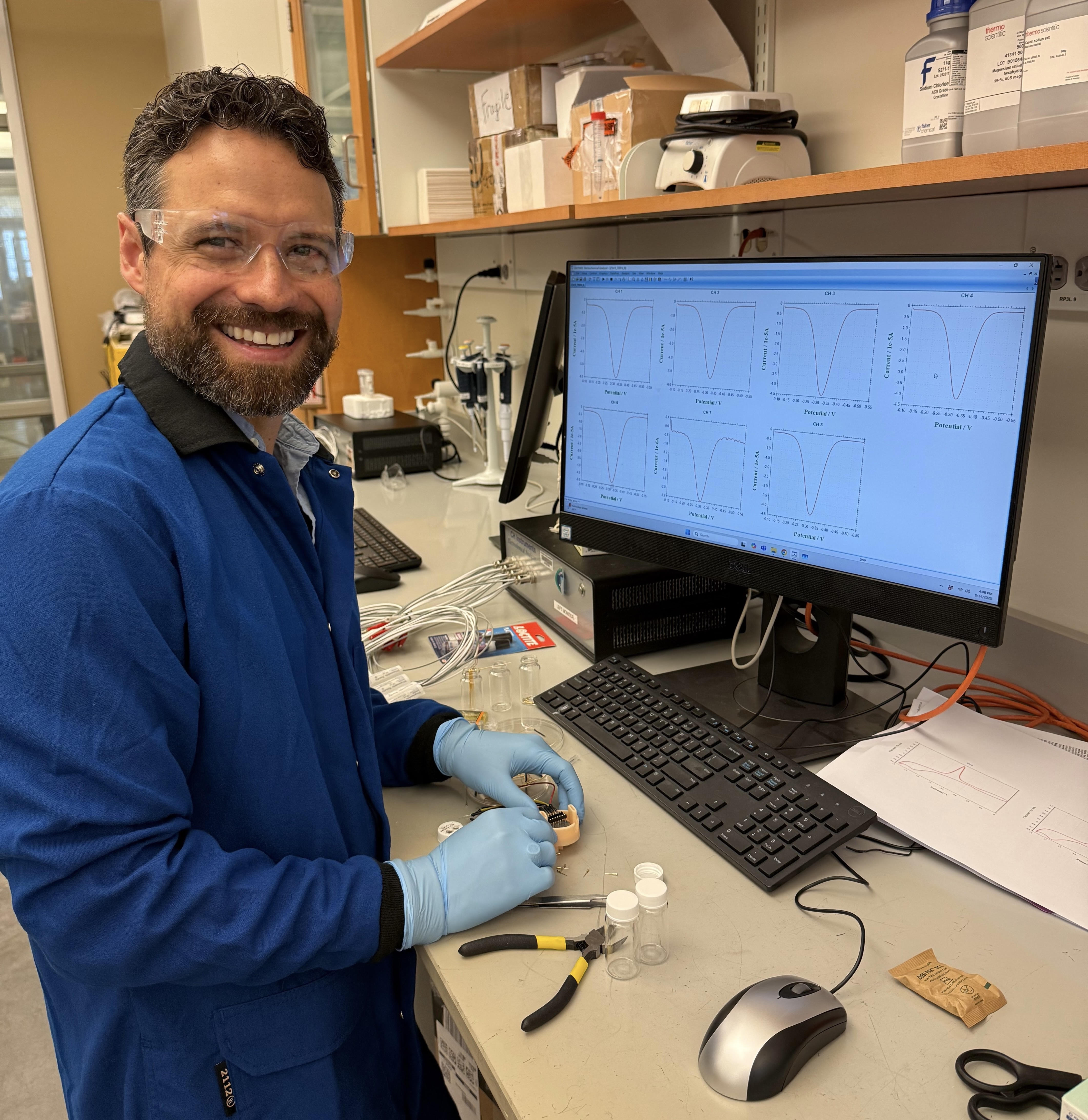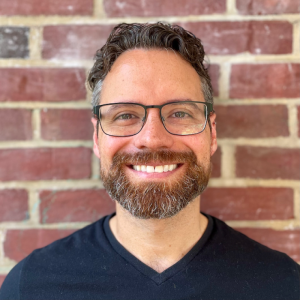New UNC Professor Develops Wearable Devices Monitoring the Body’s Chemistry

Netz Arroyo, who joined UNC in July after a highly successful tenure at Johns Hopkins University School of Medicine, is an expert in creating electrochemical biosensors—tiny, highly sensitive devices that can continuously monitor molecules in the body.
August 15, 2025 I By Dave DeFusco
Imagine a tiny, wearable or implantable device that could track your body’s chemistry in real time, telling you whether your medication is working, if you’re low on a critical nutrient or even how your fitness routine is affecting your health. For Dr. Netz Arroyo, the newest associate professor in Carolina’s Department of Chemistry, this is not science fiction, it’s his everyday work.
Arroyo, who joined UNC in July after a highly successful tenure at Johns Hopkins University School of Medicine, is an expert in creating electrochemical biosensors—tiny, highly sensitive devices that can continuously monitor molecules in the body. His research blends chemistry, engineering and biology to develop tools that could transform how we understand, track and improve health.
“We want to make it possible for people to get detailed, real-time information about their bodies,” said Arroyo. “That information can empower better decisions about diet, exercise, treatments—really, everything that affects health.”

The Arroyo Lab and his team design sensors that mimic the body’s natural ability to detect specific molecules. These devices can measure important compounds like drugs, proteins and other chemical signals without needing a blood draw or trip to the lab.
The potential applications are wide-ranging:
- Better medication management by showing exactly how much of a drug is in the body at any moment.
- Personalized health monitoring, with wearable devices that give a detailed chemical snapshot of your well-being.
- Smarter drug delivery systems that respond automatically to changes in the body.
His group’s recent work has even revealed surprising details about how medicines spread through the brain, and developed new tools for tracking HIV treatment and cancer biomarkers in real time.
Arroyo’s impact isn’t limited to the lab bench. In 2025, he became interim editor-in-chief of ECS Sensors Plus, an international journal that publishes cutting-edge research on sensing technologies. He has been recognized as a “Rising Star in Sensing” by ACS Sensors and has earned awards for both research and teaching, including Johns Hopkins’ Cecil H. Robinson Teaching Award in 2024.
His scientific reach spans collaborations on everything from COVID-19 antibody tracking to new materials for improving sensor performance. In the past two years alone, he’s co-authored studies on brain drug mapping, rapid prototyping of biosensors and DNA-based devices that can detect proteins and genetic material with incredible precision.
Beyond his research, Arroyo is committed to building a diverse and welcoming scientific community. His lab actively works to ensure that people from all backgrounds have access to research opportunities and that every voice is respected.
“Creativity and innovation come from diversity,” he said. “Different perspectives are what allow us to solve hard problems in new ways.”
Arroyo earned his undergraduate degree in chemical sciences from Tecnológico de Monterrey in Mexico, his Ph.D. in analytical chemistry from the University of Texas at Austin, and completed a postdoctoral fellowship at the University of California, Santa Barbara. He joined the faculty at Johns Hopkins in 2019 and quickly built a reputation as a creative researcher and inspiring teacher before making the move to Chapel Hill.
As he settles into his new role at UNC, Arroyo is looking forward to expanding his research and collaborations. His goal is clear: to create technologies that bring laboratory-level chemical analysis into everyday life.
“For patients, athletes, doctors and anyone interested in understanding their own biology,” he said, “the future as I envision it is one where chemistry quietly works in the background, helping people live healthier, more informed lives.”

